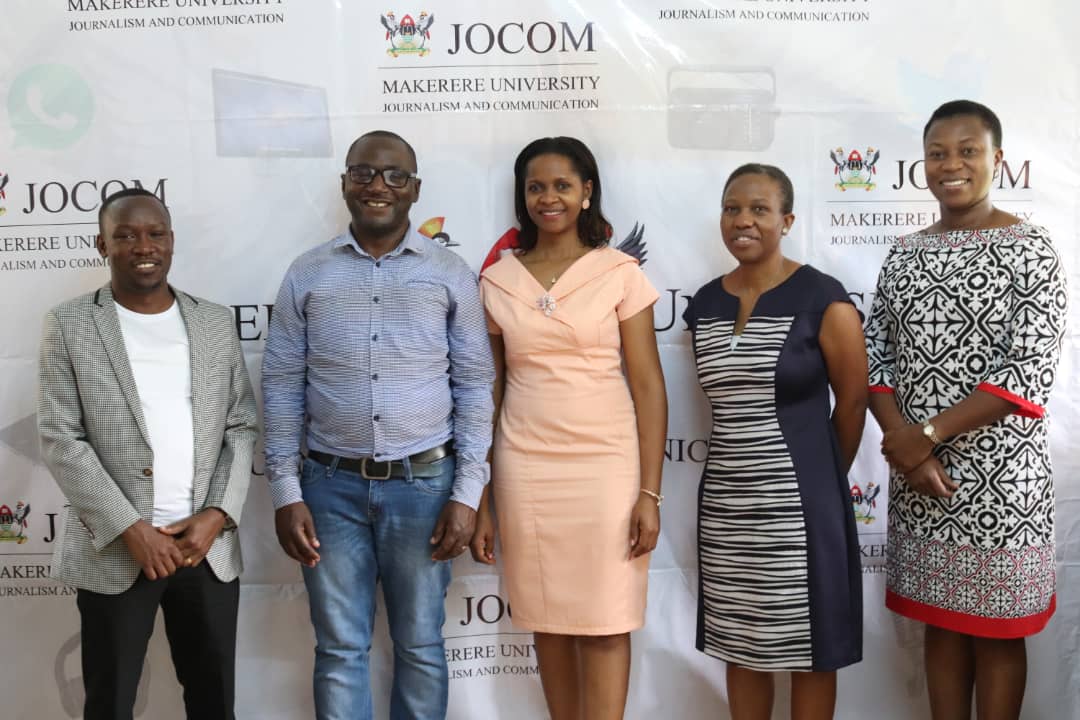
In response to the disruptions to education caused by the Covid 19 pandemic, and the subsequent closure of academic institutions during different periods of 2020 and 2021, Makerere University rolled out the Open Distance and E-Learning (ODeL) system, that required all staff and students to embrace electronic methods of teaching and learning. Both staff and students were encouraged to make use of the Makerere University Electronic Learning Environment (MUELE) to support this initiative. University-wide training was conducted to ensure that there is familiarity with using MUELE and other electronic means to support teaching and learning.
But during the recent National Humanities Conference held on 11-13 August 2021 at Makerere University, a panel discussion on the subject of E-Learning revealed that the ODeL process was riddled with several challenges and was therefore not conducted smoothly.
The panel discussion titled ‘Digital Natives and digital migrants: Exploring the place of multimedia tools in E-Learning at Makerere University,’ was comprised of four lecturers from the Department of Journalism and Communication: Dr. Fred Kakooza, Dr. Sara Namusoga-Kaale, Dr. Marion Alina and Dr. Charlotte Kawesa Ntulume.
The panel conducted a study within the School of Languages, Literature and Communication using mixed methods that employed both an online survey for graduate students and in-depth interviews for lecturers. Respondents and responses were categorized as either reflecting a digital native or a digital migrant. Digital natives are those who are familiar and proficient with application of new technologies, while migrants are the opposite as per the study’s definition of terms. The experiences of both students and lecturers in using MUELE and other E-Learning platforms were recorded as horrific, exhausting, frustrating, eye-opening and exciting among others; implying that digital natives and migrants existed across the divide.
“I say horrific because you find this new space that you have not used before and sometimes you
do not know how to deal with it; you do not know how your students are going to deal with it.
I remember one of my students sent me a message and said that the students are saying they are
tired of MUELE… they are tired of online technologies and all that. And I said, you know they can decide to drop out of the course… because I did not know what to say to him,” remarked one of the interview respondents.
“Sometimes I found the tools really deep and rich in the information they were providing. And for me, what is quite interesting is that even though I teach these things, I realized that I was actually also being taught on the job,” explained another respondent.
The students pointed out poor Internet connectivity, lack of smart phones or computers when off campus, high costs of Internet data, unfamiliarity with MUELE and other tools as key hindrances to their eLearning experience.
Overall, the panel noted that multimedia tools such as videos, audios, social media and video conferencing facilities greatly enabled teaching and learning to take place outside the physical classroom. In addition, they enhanced creativity in teaching and learning and saved time that the stakeholders involved would have spent travelling to attend physical classes.
Amidst all these efforts was the glaring absence of a clear university policy on whether online learning is now fully embraced by Makerere University. Different respondents expressed concern that this uncertainty explains why attempts to roll out MUELE have been on and off, dating back to years before the Covid 19 pandemic. The panel concluded with a call for a faster consideration of a policy guideline to this effect since eLearning and blended learning is the way of the future. In addition, the panel expressed willingness to conduct a university-wide study to help map out the exact status of each student and staff member, so that solutions can be tailor-made.
The panel was beefed up with a presentation from Richard Kajumbula on Evaluation of The Implementation of The Emergency Open, Distance And E-Learning (ODeL) System at Makerere University During the Covid-19 Pandemic. Kajumbula noted the need for more capacity building of both staff and students, investment in core infrastructure and internet subsidy for education.
Article by Dr. Marion Alina




